
Articles on Dolphins
Displaying 1 - 20 of 58 articles

So much is being lost due to climate change, one can feel deranged. But the world still hums with beauty and astonishment – there is much for us to save.
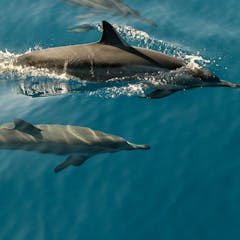
Let’s delve into the three super-senses of dolphins: magnetic perception, electrical perception and echolocation.

Researchers are finding alarming concentrations of persistent pollutants such as PFAS in Australian dolphins. These record-breaking levels are cause for concern.
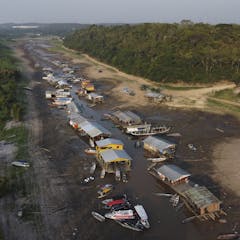
A combination of climate change, a strong El Niño and an insistence on works of enormous impact are contributing to an unprecedented and extremely urgent situation in the region
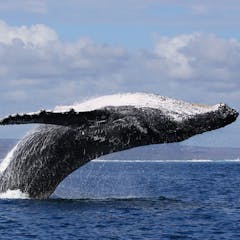
The multi-billion-dollar whale-watching industry enables millions of people to see these magnificent creatures up close. But the noise made by so many boats is a threat to whales’ wellbeing.
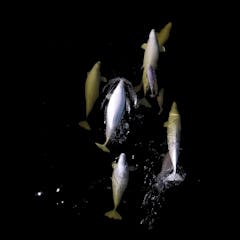
Drones are a new technology that help researchers observe and record whale behaviours from a distance. But if the drones are flown too low, they change the whales’ behaviour.
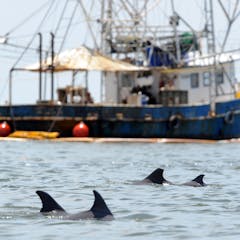
Noisy oceans are having a significant impact on marine life.

To fish the oceans sustainably, nations must reduce bycatch, or accidental catches. But fishermen often resist changing gear or techniques that kill nontargeted species.

Swimming and surfing in the ocean is fun and invigorating. But sharing the water with animals comes with risks to us and them.
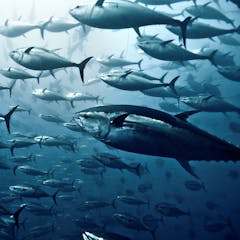
Just about every creature on Earth needs to grab some Zs from time to time. Imagine trying to doze while dodging great whites and killer whales.

Using urine and signature whistles from other dolphins, a team of scientists has shown that dolphins use signature whistles like names and hold mental representations of other dolphins in their minds.
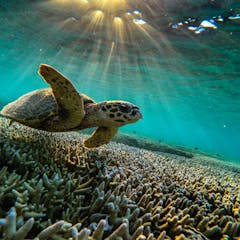
Many of Africa’s large aquatic animals, such as dolphins, manatees and turtles, are being killed for meat.

North American red squirrels produce a range of sounds, but their distinctive rattle call may have more to do with identifying themselves than warning off other squirrels.
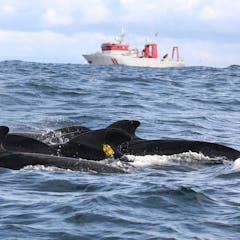
Whale species at higher risk of predation from killer whales are more adversely affected by the sound of sonar.
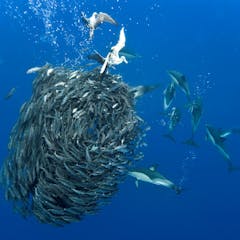
There are some important issues to consider to best help marine species such as Atlantic puffins, bottlenose dolphins and orcas.
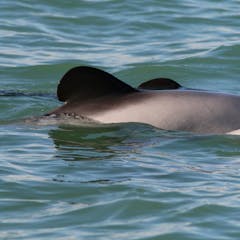
Māui dolphins are at risk of extinction. With a marine mammal sanctuary in place since 2008, the risk from fisheries is now largely under control. It’s time to take other threats more seriously.

Some animals, such as California sea lions, have small brains relative to their body size, but are still impressively intelligent, showing brain evolution is even more complex than it appears.
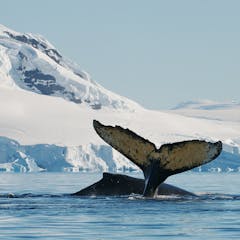
The cetacean brain has a specialised thermogenic system that helps the animal’s brain to produce enough heat to maintain a functional brain temperature.
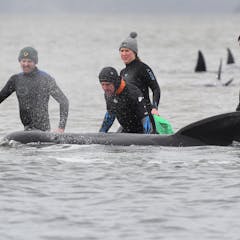
It’s time to listen to warnings from the people of the Pacific.

More than 450 long-finned pilot whales are stranded in Tasmania. Saving them is a race against time.
